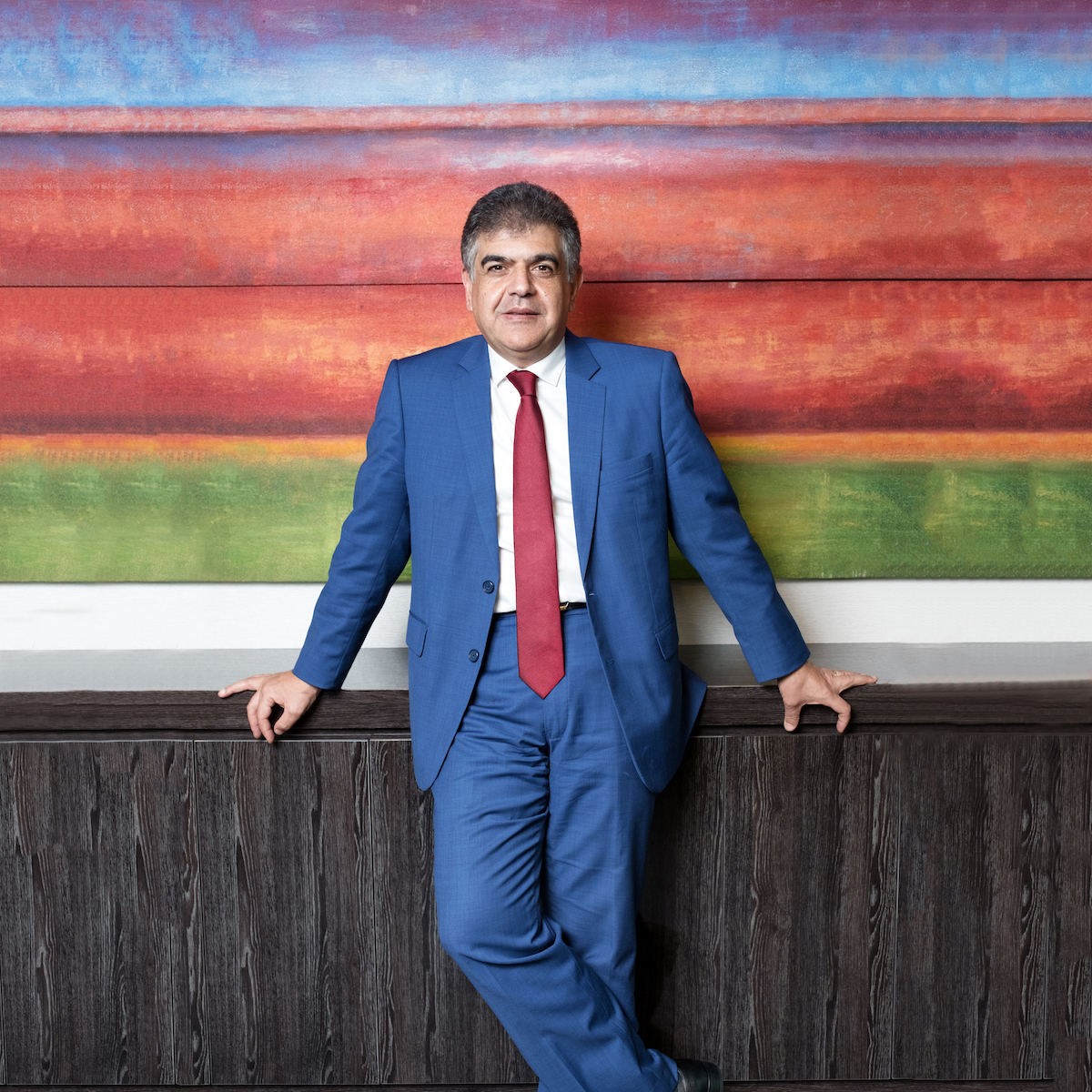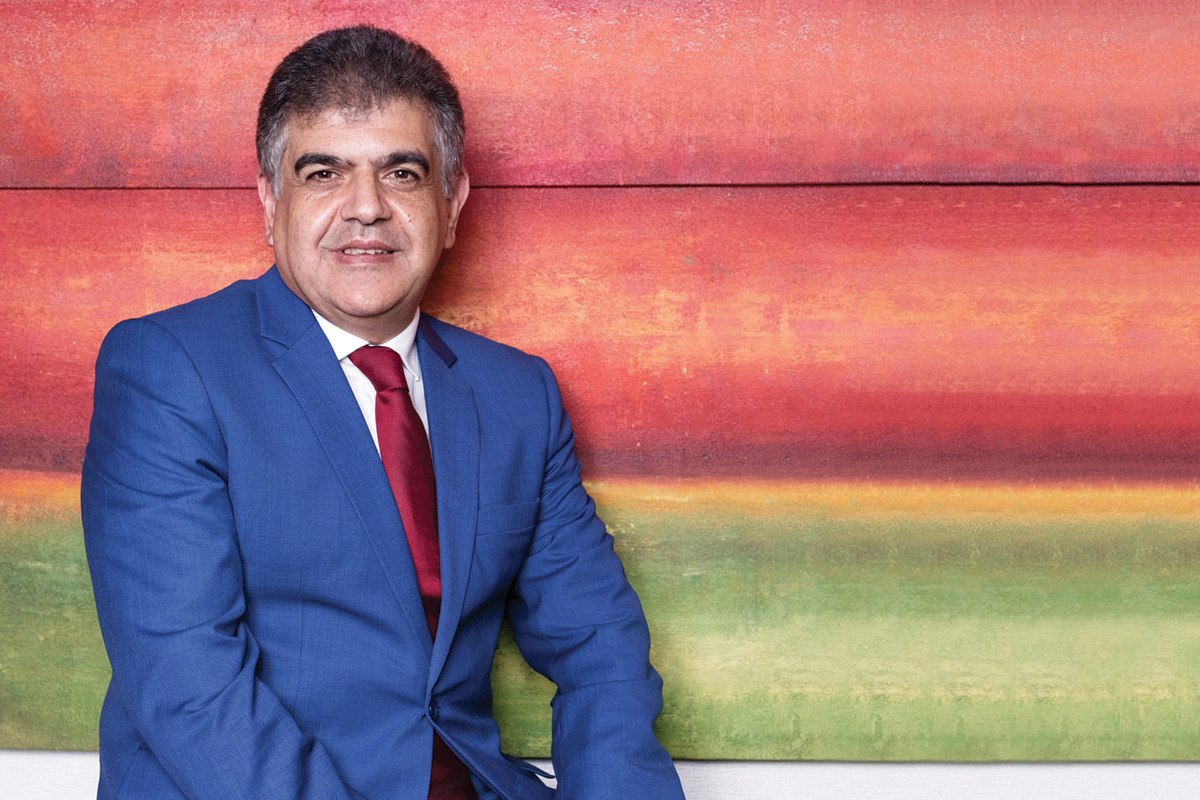Henri Nejade has always been curious about other cultures. An avid traveller, he has a natural interest in learning about the history of people, in particular understanding other religions and different ways of thinking. “When I’m on vacation, I’m always moving around a lot, visiting different museums and learning about the history of different countries,” Henri says.
This knowledge comes in handy for the boss of the Asia–Pacific operations for a European company, a position he has been in for the best part of a decade. In 2008, the global chemical distributor Brenntag acquired Rhodia’s chemical distribution operations in South East Asia, marking its presence in the region. Henri was Vice-President of Rhodia, and following the acquisition he was made CEO and president of Brenntag Asia–Pacific.
Since then, the company has strengthened its hold on the region, making eight more acquisitions. It now has a presence in more than 80 locations in 15 countries across Asia–Pacific, with 1,900-plus employees.
Henri Nejade adapts to Asia-Pacific’s cultural diversity
Although he has spent most of his working life in Europe, Henri has had plenty of exposure to Asia in his current role. There are stark differences in cultures and attitudes between the continents, he explains. “Every country is different. You need to adapt and be agile, understanding the different cultures and mentalities,” Henri says. “You don’t manage India in the same way that you manage Australia, China, Singapore or Thailand.”
This challenge of diversity in Asia–Pacific is further complicated by the logistical issues around having a complex distribution list. Henri believes there are hundreds, and possibly even thousands, of players in the geographic area. “They are mainly small or medium-sized companies, extremely fragmented and diversified,” he says. “Some of them are in a niche market, while others are small companies dealing within a small area.

Every single country is different. You need to adapt yourself and you need to be agile, understanding the different cultures and mentalities.
“It’s challenging and we need to manage it cautiously. In addition to the size of Asia, there’s also the speed of activity on the continent. You need to be extremely fast in your decision making and in your execution, which may be in one or the other case different to the way you would manage in Europe or the US.”
Brenntag maintains an agile & adaptive business model
Because the Asia–Pacific market is so culturally diverse and fragmented, Brenntag’s business model is flexible and can be adjusted according to the region. Henri views Brenntag as a sales and marketing platform that is positioned between suppliers and customers, meaning it doesn’t produce a finished product.
“We are partnering with suppliers, the majority of which are either global or have partners globally. We represent them in the region and do their brand promotion, advertising their product line, but in a way that’s best for small to medium-sized customers,” he explains.
In addition, Brenntag’s chemical products are divided into two channels: industrial and specialty. Henri cites the specialty chemical side as a valuable part of its service offering. “We are developing tailor-made solutions for our customers in terms of service and technical support, as well as product applications,” he says. “In Asia–Pacific, we have 26 application labs for different industries, and we provide real technical knowledge and know-how around application and functionality of our products to customers.”
“We definitely want to be the market leader.”
Brenntag’s business value proposition also revolves around two key elements. The first is managing environmental protection standards and safety for employees. “Customers and suppliers want to deal with a company with a high standard in safely managing their products,” says Henri.
“Each country has its own standard. When we compare ourselves to our competitors, our standards are usually higher than what is required. We implement this because we strongly believe that’s what is valuable for our employees and for our business partners.”
The second element is regarding the management of cost and efficiency for suppliers and customers. Henri notes this part of Brenntag’s value proposition is much more complex, given the fragmented market in Asia–Pacific.
Brenntag continues to remain focused on developing new geographic segments in the specialty chemical division. In June, it acquired Hong Kong-based Wellstar Group, further growing its presence in South China. The company is also looking to explore further opportunities in India.
“I strongly believe that India is going to change very rapidly in the next couple of years,” Henri says. “And we definitely want to be the market leader.”



